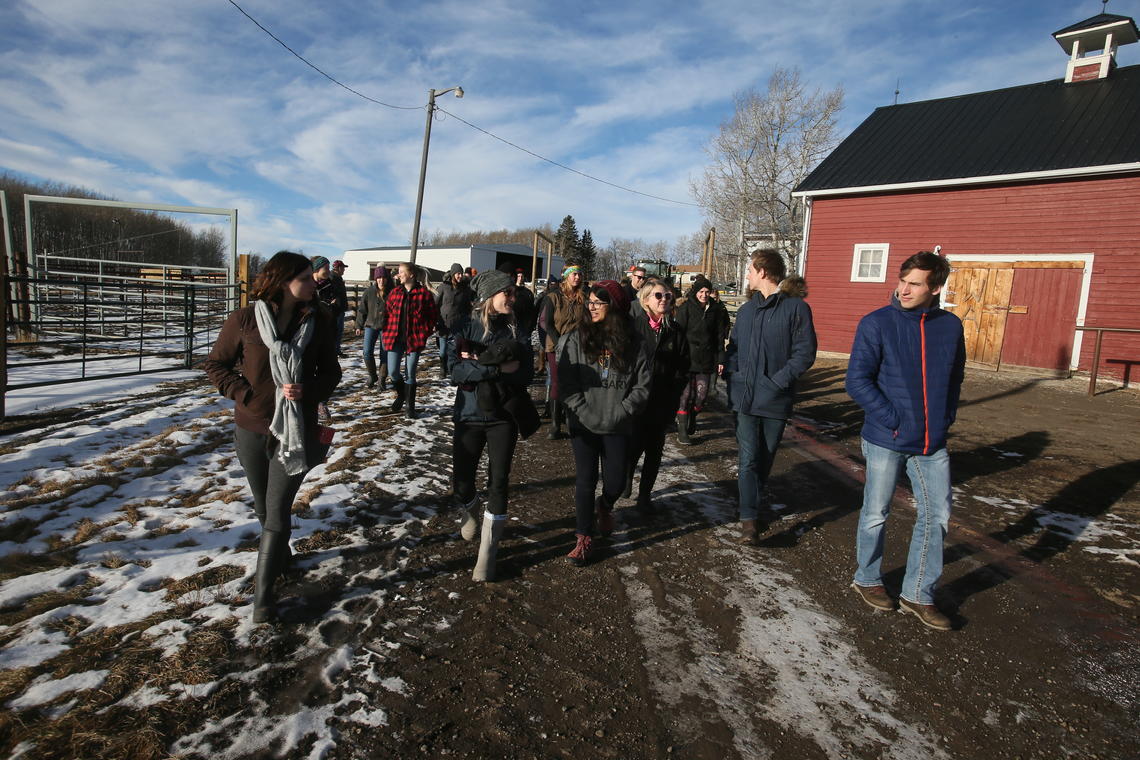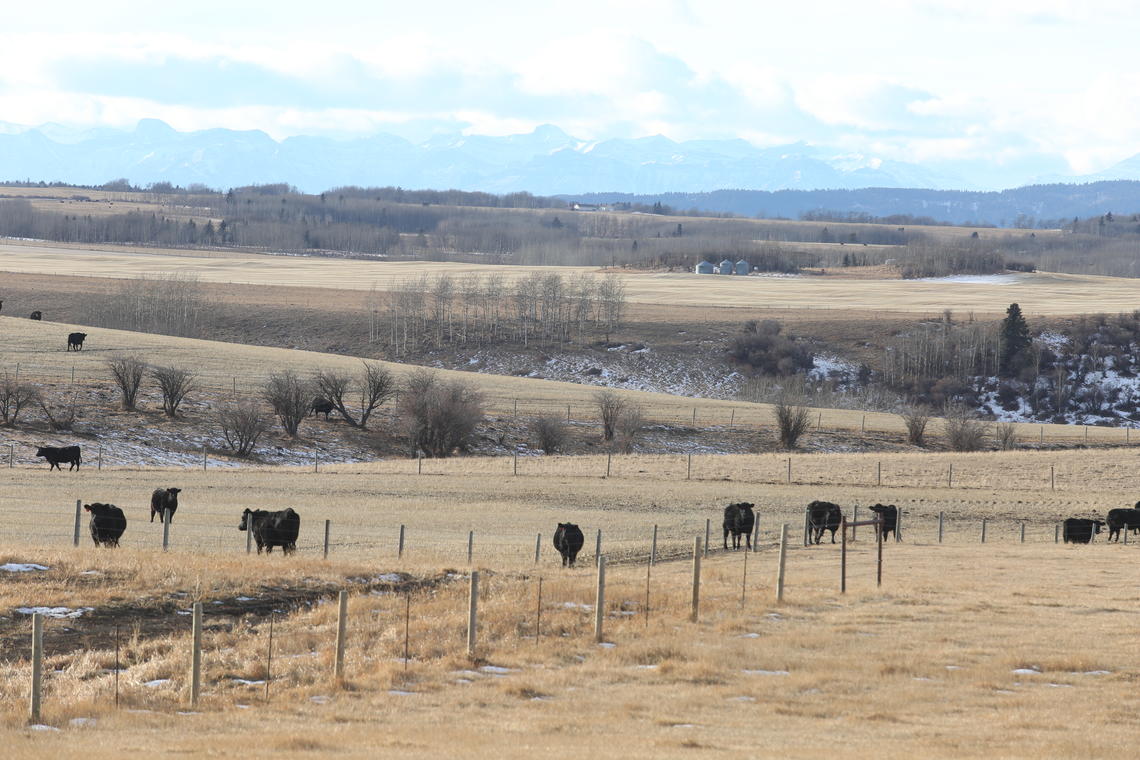Jan. 14, 2019
Busload of Vet Med students visit their new classroom on the range for the first time

As a yellow school bus drives up to an expanse of rolling ranchland one chilly January afternoon, a herd of beef cattle turns their curious eyes to watch. What they see: a group of first-year students from the University of Calgary Faculty of Veterinary Medicine (UCVM) disembarking for their first look at their new 19,000-acre classroom.
“Honestly, I’m speechless,” Emma Jackson says. “I don’t really know what to think about it because it’s so grand.”
Pictured above are Jackelyn Elgert, left, and Emma Jackson, geting the lay of the ranch land on their first visit to W.A. Ranches

Students' tour of the W.A. Ranches property included cattle processing facilities and outbuildings.
Mike Ridewood, for the Faculty of Veterinary Medicine
Jackson, who grew up on a cattle ranch in northern Alberta, is struck by the beauty and the size of W.A. Ranches — a working cow-calf operation near Cochrane donated to the University of Calgary by J.C. (Jack) Anderson and his daughter Wynne Chisholm. “I’m really excited to see what’s going to happen in the future, how my classmates and I will play a role here.”
Jackson and her fellow students have the distinction of being the first Vet Med class to visit the ranch for teaching purposes since the $44-million, 1,000-head operation became part of the university. And they’re the first of what will be many more students using the new facility to learn about beef cattle production and conduct cattle health and welfare research.

Vet med students disembark for a first look at their new 19,000-acre classroom.
Mike Ridewood, for the Faculty of Veterinary Medicine
Ranch-raised student excited about opportunities
Having grown up on a small ranch near Athabasca, Jackelyn Elgert knows her way around a cow-calf operation and was eager to see the real-life classroom first-hand.
“It’s amazing. It’s huge. I grew up on a farm but we just have 150 cows so this is much bigger. And when there’s 45 to 50 calves born a day, if students want to come out and see what calving is really like they’re going to see it happen. I think that’s awesome.”
After Elgert graduates from UCVM, she wants to focus on large animal medicine and she’s “super excited” about the gift of W.A. Ranches.
“I think it opens up a lot of opportunities for all the students interested in large animal medicine. Working on the dairy cattle (at the Spy Hill campus) is not as realistic as being on a cattle farm, especially a beef farm, so I think it will be a really great opportunity for students to see how the farm is running and work on it.”

The ranch offers incredible opportunities for teaching about beef cattle production and health.
“It’s quite an occasion having our very first class of students here to learn about beef cattle,” says Dr. Ed Pajor, PhD, Anderson-Chisholm Chair in Animal Care and Welfare and the inaugural director of the ranch in charge of academic and research programming. “The more opportunities our students have to be involved with a working ranch operation, the better they’ll develop an understanding of the importance of the cattle industry and get a sense of potential roles for them as large-animal veterinarians.”
The Anderson and Chisholm families’ gift of W.A. Ranches supports UCVM’s strategic plan to support and respond to the needs of Alberta’s agriculture community with clinical and diagnostic expertise, and research excellence — and to become a leader amongst research-intensive North American veterinary colleges.
Anderson and Chisholm’s gift is part of the university’s ongoing fundraising campaign, Energize: The Campaign for Eyes High.
